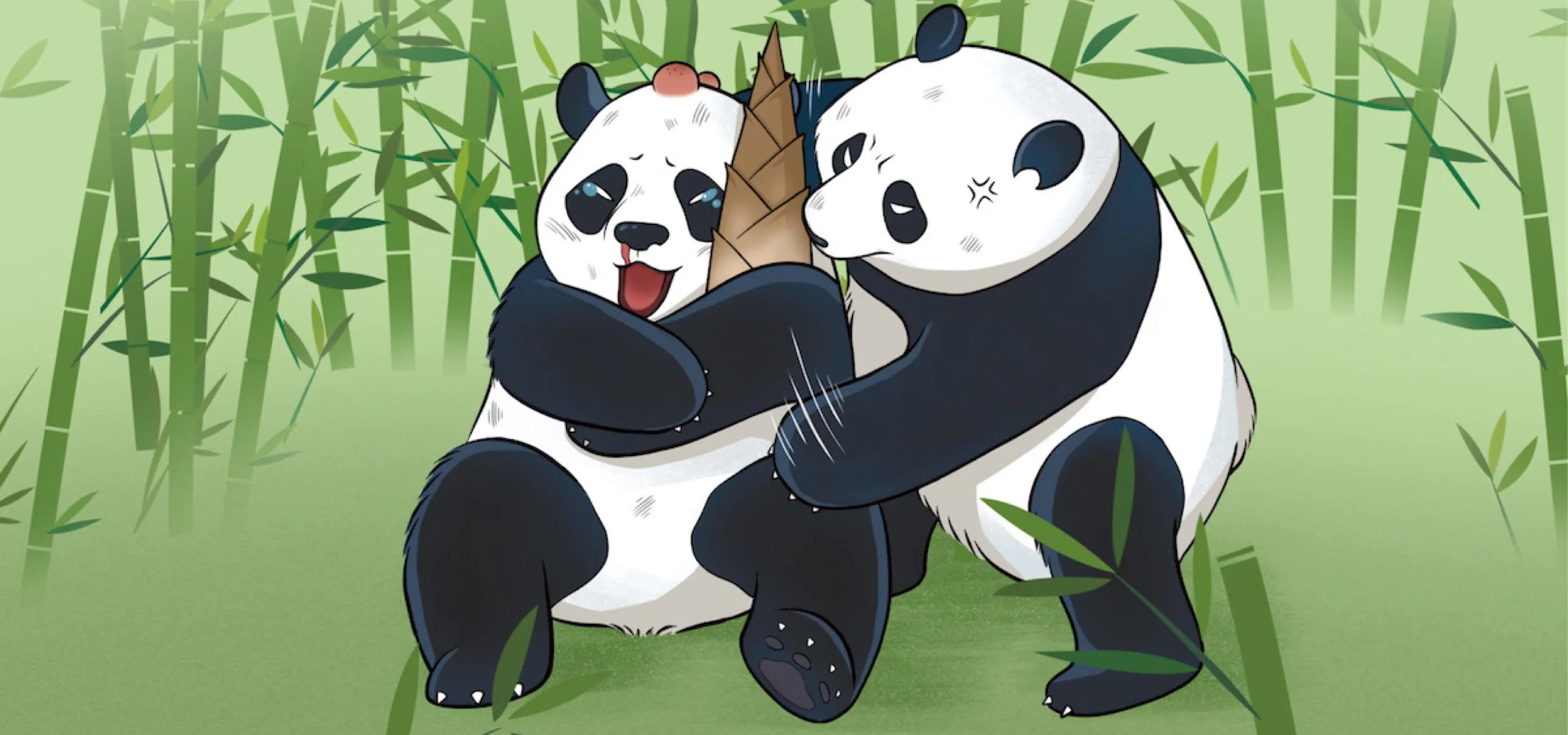Why are people talking about snatching bamboo shoots (夺笋 duó sǔn)?
With his satirical novel Fortress Besieged (《围城》), writer Qian Zhongshu (钱钟书) earned himself a reputation as a master of sarcastic mockery with biting remarks like: “For ugly people, to be looked at closely is an act of cruelty (对于丑人,细看是一种残忍 Duìyú chǒurén, xìkàn shì yì zhǒng cánrěn).”
Not all of us can be as witty with our barbs as Qian Zhongshu, but the expression 夺笋 (duó sǔn) has lately become trendy for describing mean or sarcastic words and actions one encounters in everyday life. Literally meaning “to snatch bamboo shoots,” the phrase is chosen for its similar pronunciation to 多损 (duō sǔn, mean), and is based on the real-life habit of pandas fighting each other in the wild for first dibs on their staple food. The buzzword was popularized by Guo Laoshi, an influencer known for speaking in the humorous accents of Dongbei (northeastern China), the language of Chinese comedy.
Acts of meanness can range from the jovial to the serious. During the Covid-19 pandemic when social distancing was put into effect across China, one could say to unexpected guests who showed up at one’s home: “The epidemic is so serious, but you’re still visiting people’s homes. How mean! (疫情这么严重了还上人家串门,夺笋啊 Yìqíng zhème yánzhòng le hái shàng rénjia chuànmén, duó sǔn a!)” But if you were shocked to find yourself falling for an April Fool’s Day trick, you could also say, as a compliment to the joker, “You’ve snatched all the bamboo shoots on the mountain (山上的笋都被你夺完了 Shānshang de sǔn dōu bèi nǐ duówán le)!”
A subculture of celebrity fans delights in 夺笋 behavior. Calling themselves 笋丝 (sǔnsī, “bamboo fans” or “mean fans”), the portmanteau of 夺笋 and fan (粉丝 fěnsī), such people don’t fawn over their idol, but will play pranks and take humorous pot-shots at celebrities as a way to catch their attention and personalize interactions. This rebellious fan community emerged from the talent show Chuang 2021, which featured an unmotivated Russian contestant called Lelush. Somehow, the reluctant idol attracted a growing fanbase who kept voting him up the ranks though he repeatedly said he wanted to quit the show.
Bitterness tends to replicate itself, and a biting remark often leads to a string of sarcastic replies, where each party tries to one-up the other with backhanded compliments. Such remarks have given birth to the phrase, 伤害性不强,侮辱性极高 (shānghàixìng bù qiáng, wūrǔxìng jí gāo, “damage level not strong, but humiliation level high”), to describe comebacks that pack a punch without using any swear words or direct insults.
For instance, let’s say you offer your seat to a granny on a crowded bus, and she then laments that you have to squeeze onto a crowded bus rather than drive a car, like her more successful son. What’s the best comeback? Perhaps try, “Actually, I used my money to buy a car for my mother, so she wouldn’t have to take the bus (实际上,我给我妈买了辆车,这样她就不用搭公交了 Shíjì shang, wǒ gěi wǒ mā mǎile liàng chē, zhèyàng tā jiù búyòng dā gōngjiāo le).”
Or maybe you can just smile and turn the other cheek. Try to be a little better than pandas fighting for scraps of bamboo in the wild.
How Chinese Netizens Talk Like Squabbling Pandas is a story from our issue, “Something Old Something New.” To read the entire issue, become a subscriber and receive the full magazine.












